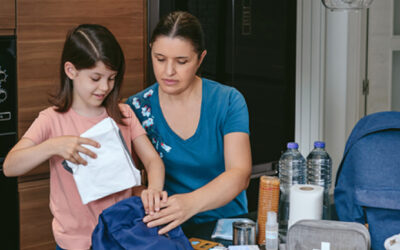Managing Diabetes is a Family Affair
Checking for symptoms. Constant blood sugar monitoring. Daily insulin injections. The rigors of managing diabetes in kids can seem overwhelming. Even parents with the best intentions can feel the strain and complain, causing the child to feel more anxious or feel like a burden.
“We want children to stay healthy and be able to participate fully in normal activities, like school and sports,” said Dr. Janna Flint Wilson, pediatric endocrinologist with Our Lady of Lourdes Women’s & Children’s Hospital. “A child with diabetes is often the only person they know who has it, so it’s important that parents help them to understand their condition and help them manage it in healthy, age-appropriate ways.”
Type 1 vs. Type 2 Diabetes
The most common form of diabetes in children is Type 1. It’s an autoimmune disease where the body stops producing insulin. It can strike at any time and affects toddlers, school-age children, teens and even adults.
Symptoms include worsening, excessive thirst and frequent urination plus weight loss. If those symptoms are not noticed, kids are usually brought into the hospital emergency room with acute abdominal pain and throwing up, perhaps with difficulty breathing. Once a child is diagnosed with diabetes, the families are taught diabetes management skills and strategies, such as frequent testing of blood sugar and multiple daily injections of insulin.
Type 2 diabetes occurs when the body develops a resistance to insulin. It can even occur in children who have the genetic tendency, follow a sedentary lifestyle and who are obese. Type 2 diabetes is usually managed with oral medication and diet, but some children require insulin injections.
The Demands of Diabetes
Managing symptoms, especially Type 1 diabetes, require parents to become especially vigilant.
“It often seems daunting and it’s easy for a parent to become overprotective,” Dr. Flint Wilson said. “There are many ways to manage diabetes. It is important to find a way to manage the diabetes that fits best with the schedule and the lifestyle of the patient and their family.”
“We want families to teach children problem-solving skills they’ll need to manage their diabetes for life,” Dr. Flint Wilson explained. “Managing diabetes is a huge responsibility, and no child or teenage can do it on their own. They need help and support from the adults in their life with counting carbs at meals, keeping up with blood sugar checks and making sure insulin is given.”




